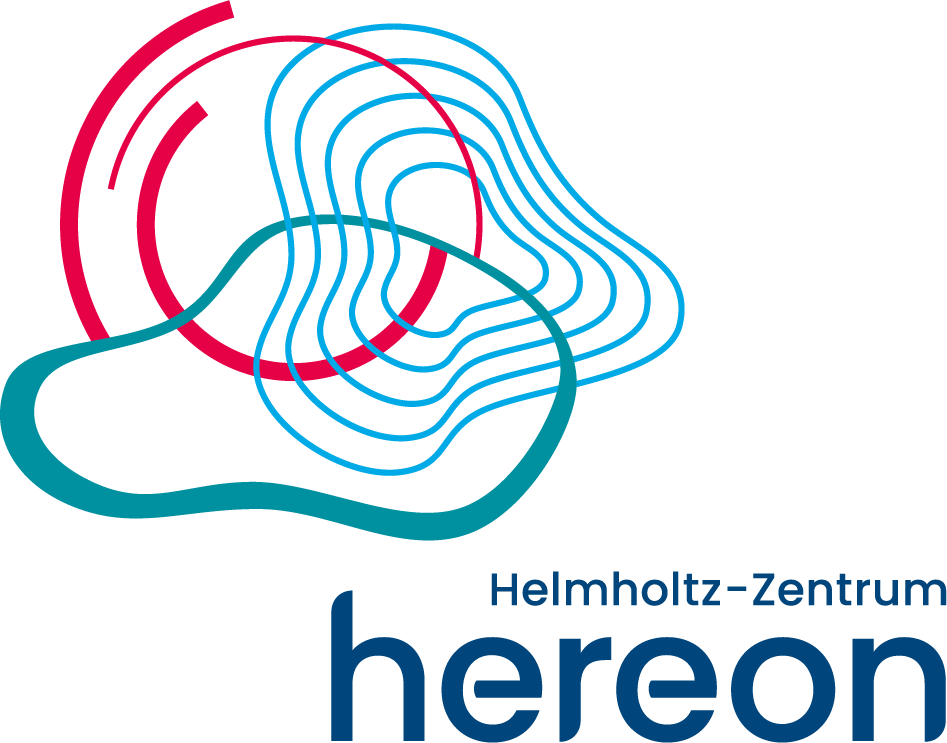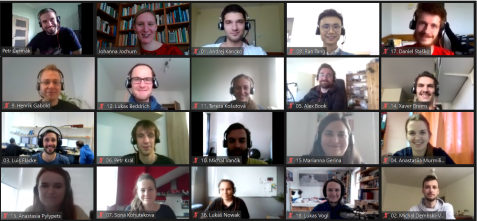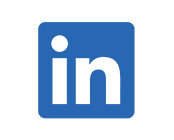MLZ is a cooperation between:
 > Technische Universität München
> Technische Universität München > Helmholtz-Zentrum Hereon
> Helmholtz-Zentrum Hereon
 > Forschungszentrum Jülich
> Forschungszentrum Jülich
MLZ is a member of:
 > LENS
> LENS > ERF-AISBL
> ERF-AISBL
MLZ on social media:

MLZ (eng)
Lichtenbergstr.1
85748 Garching
12.11.2020
Getting to know the large-scale facilities in Munich and Prague through a virtual format

The participants of the student Flash Talk competition, together with the organizers just before the start of the competition. © Johanna K. Jochum
Before the current crisis, a mini-school for budding physicists was planned and organized by scientists at the Technical University of Munich and Charles University – a cooperation project funded by the Bayerisch-Tschechischen Hochschulagentur. But as it has turned out, Corona forced the event to be held in a virtual format. The silver lining is that this format allowed a larger number of people from around the world to participate.
The aim of this Czech-Bavarian mini-school, held from the 18th to the 22nd of October, was to introduce the junior researchers to the large-scale facilities ELI (Extreme Light Infrastructure) beamlines, the Charles University, and Heinz Maier-Leibnitz Zentrum. Through these introductions, participants could gain valuable insights into these laboratories as well as opportunities to network and socialise.
As is the case with so many things during this time, the Covid19-pandemic prevented the event from taking place in its originally planned form. But since it remains paramount to keep the education and promotion of the next-generation scientists alive despite ongoing crises, it was important to the organizers that the first Czech-Bavarian mini-school on large scale facilities and open data not be cancelled. Therefore, they entirely overhauled the concept of the mini-school in order to transfer it to an online format.
Five times as many participants as planned
An online event does have a few clear advantages – instead of the original 20 participants from Munich and Prague, close to 100 scientists from 20 different countries registered for the various different lecture series.
In spite of the restrictions imposed by current conditions, the highlights of the mini-school were the guided tours through the different large-scale facilities. The ELI beamlines near Prague, reconstructed their laboratories virtually, allowing for a complete online tour to take place. Similarly, Dr. Johanna K. Jochum organized a tour which led the students through the FRM II using a webcam. In addition, the students received a detailed look through the Materials Growth & Measurement Laboratory from Dr. Petr Čermák.
Hands-on data evaluation
Besides guided tours and lectures, the students from Prague and Munich were able to demonstrate their presentation skills and give a short introduction to their research topics during the student flash talk competition. The participants delivered impressively clear and creative talks, even under the pressure of strict time constraints.
During the last day of the mini-school, the participants were apprised of an important current trend in the documentation of science research: Open Data based on the “FAIR” principles of “findability, accessibility, interoperability, and reusability” of data for the good of the entire scientific community. After an extensive introduction to the topic and several open data tools, the participants were given a chance to immediately apply these tools to a dataset made available by the Institut Laue-Langevin.
Further information:
The data reduction and evaluation script was shared via the “figshare” plattform. It can furthermore be executed via a docker-imagen. The results of the data evaluation were summed up in a small manuscript and published on “arXiv”.
MLZ is a cooperation between:
 > Technische Universität München
> Technische Universität München > Helmholtz-Zentrum Hereon
> Helmholtz-Zentrum Hereon
 > Forschungszentrum Jülich
> Forschungszentrum Jülich
MLZ is a member of:
 > LENS
> LENS > ERF-AISBL
> ERF-AISBL
MLZ on social media:


